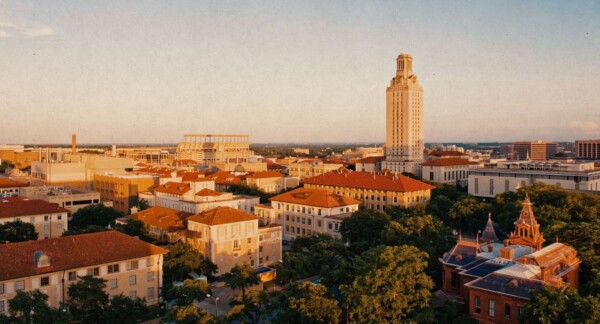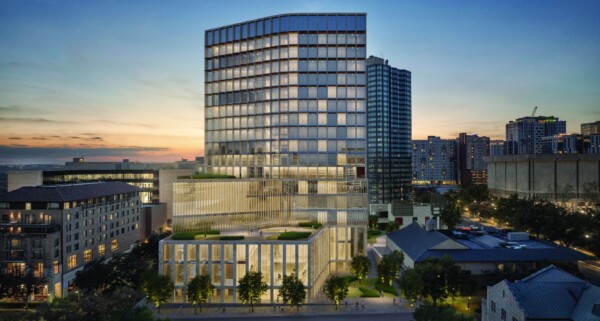Housing Speculators Could Bring on Repeat Crash
Housing speculation inflated a third of the housing bubble that led to the Great Recession. In parts of the country, it could happen again.
Based on the research of Michael Sockin

In postmortems on the Great Recession, much blame has fallen on low-income homebuyers. By taking out subprime loans for houses they could not afford, the story goes, they brought down first the mortgage market and then the entire economy.
When Michael Sockin analyzes that era, however, he sees a different culprit — at the opposite end of the economic spectrum. In new research, the Texas McCombs assistant professor of finance finds that a major cause of the crash was well-heeled investors who drove up prices through speculation. They bought homes not to live in, but to flip for a quick profit.
“In the absence of speculation, the size of the boom and the bust would have been about a third smaller,” says Sockin.
But speculation didn’t just distort housing prices, he finds. It bled over into other parts of local economies, first boosting and then depressing jobs, earnings, and spending.
He warns that the same cycle could repeat itself today. Markets where homes are rapidly appreciating are vulnerable to speculative binges, followed by long economic hangovers.
“Asset bubbles can have real impacts outside of housing markets,” Sockin says. “They can have devastating medium- and long-term consequences.”
Homeowners Who Don’t Live at Home
When Sockin first analyzed home mortgage data for 3,935 ZIP codes, with co-authors Zhenyu Gao of the Chinese University of Hong Kong and Wei Xiong of Princeton University, they noticed a striking pattern. The curve that best matched the rise and fall of local housing prices, from 2000 through 2009, was the percentage of home purchases that were not owner-occupied.
While the nationwide average was 14%, the number soared in hot housing markets such as Las Vegas, where it hit 29%. That suggested that many of those homes were investments meant to be resold when prices rose further.
“In the early 2000s, interest rates were low and investment returns were low. People were looking for something to invest in, and they invested in housing.” — Michael Sockin
Sockin confirmed his hunch by comparing capital gains taxes across different states. Areas with lower tax rates had higher purchase rates of non-owner-occupied homes. That fit his theory that speculators would be more active in places where they could keep more of their profits.
In those areas, he says, “They put too much upward pressure on housing prices, pushing them past their fundamental levels.”
Where speculation was most intense, he found, it magnified local booms. ZIP codes whose purchases of non-owner-occupied homes were 10% higher than average also had 27% higher housing prices. But when busts hit, prices also fell a third further than the average locale: 37%. Says Sockin, “The fall was larger because speculators had pushed prices so high.”
Bigger Booms, Deeper Recessions
Beyond housing costs, the effects of speculation rippled into broader economies — both for better and for worse:
• In the same ZIP codes, employment rates were 8% higher than average during the boom and 15% lower during the bust.
• Per capita income was 14% higher during the boom and 15% lower during the bust.
Inflated housing prices pumped up local economies, Sockin says, because more people had construction jobs and more took money out of their houses through home equity loans. But they also made recessions deeper because both construction jobs and credit dried up more than in the average locale.
Those economies also took longer to recover because of supply overhangs of empty houses. “If you built too much in the boom, you’re left with it in the bust,” Sockin says.
“Household balance sheets can be repaired over time. But you can’t unmake a house.” — Michael Sockin
Looking at today’s housing markets, Sockin says he’s afraid of new speculative bubbles. Nationwide, prices have risen at more sustainable rates during the past decade. But they’re overheating in scattered places — like small towns where big-city dwellers have gone to flee COVID-19 hotspots.
In those areas, he suggests, policymakers might take measures to discourage speculation, such as raising capital gains tax rates and limiting mortgage deductions for second homes. Such steps could rein in speculators’ enthusiasm. “If you lower their returns, you lower their appetites,” Sockin says.
Lenders in such markets could do their part, he says. When a borrower is buying a second home, lenders could require more financial documentation and a higher down payment.
Above all, Sockin advises homeowners to watch for signs that speculation is swelling in their areas. “When your Uber driver says he just became a real estate agent,” he says, “start to wonder whether your housing market is due for a correction.”
“Economic Consequences of Housing Speculation” is published in the Review of Financial Studies, November 2020.
Story by Steve Brooks


